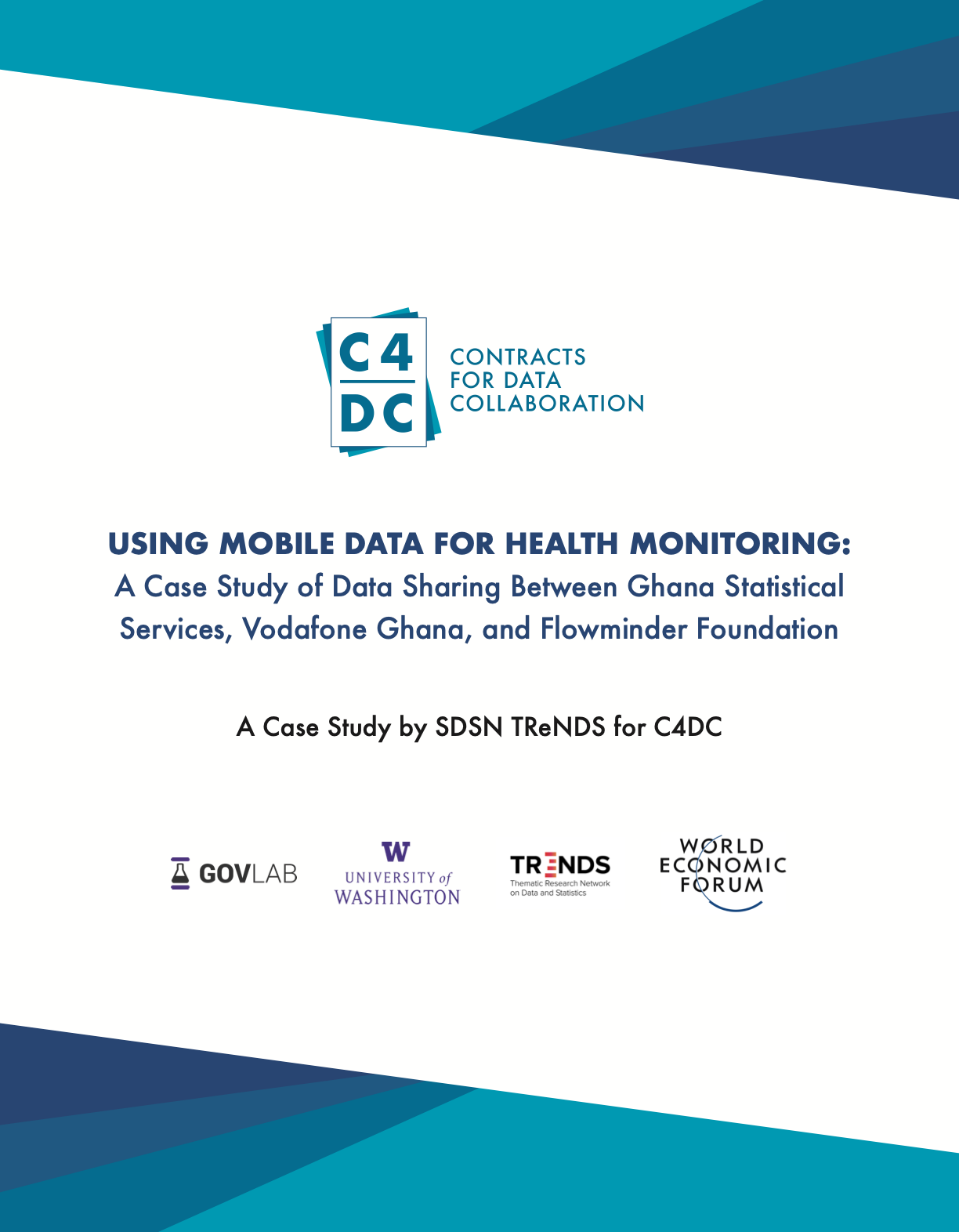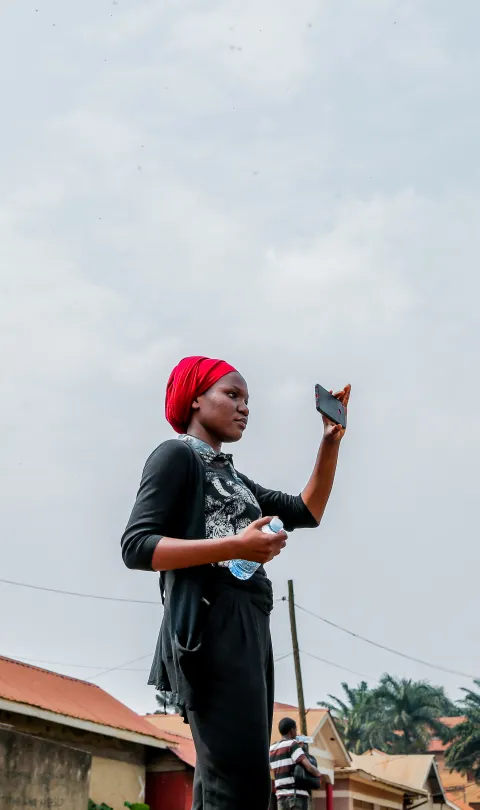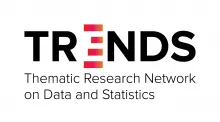A case study by SDSN Trends on behalf of Contracts for Data Collaboration (C4DC)
In December 2018, the Ghana Statistical Service (GSS) formed an agreement with the telecommunications company, Vodafone Ghana, and the Sweden-based nonprofit, Flowminder Foundation, to create a framework for integrating mobile network operator (MNO) data analysis to support its statistical efforts. According to Omar Seidu and Rachel Bowers of the GSS, the collaboration was motivated by a national capacity assessment for Sustainable Development Goals’ (SDG) monitoring, which demonstrated weaknesses in the GSS’s ability to provide disaggregated information and timely data. Additionally, in response to the 2014 - 2016 West Africa Ebola epidemic, the GSS was looking for data that could be used to address the spread of communicable diseases in relation to internal migration, and it identified MNO data as an option. There was also interest in using MNO data to measure citizens’ access to social services, including healthcare, road networks, water, and educational facilities (Seidu and Bowers, 2020); this data can inform the government about which segments of the population are accessing services and how long it takes them to reach service locations. The resulting agreement and the sharing of timely data are now all the more relevant, as governments around the world consider how to leverage insights from mobile networks during the COVID-19 pandemic.
The partnership came out of the first UN World Data Forum (WDF), held in Cape Town in January 2017. After the GSS staff attended WDF presentations on MNO data and learned about potential applications, the Global Partnership for Sustainable Development Data (GPSDD) helped to facilitate an initial meeting with Flowminder. During this meeting, the GSS learned from Flowminder that Vodafone Ghana had previously tried to work with the Ghanaian Ministry of Health during the Ebola epidemic, but Ghana’s Data Protection Commission had stopped the project due to privacy concerns. However, because the GSS has a broader mandate for collaboration than the Ghanaian Ministry of Health, the parties expected the project to be more feasible this time around. In an effort to streamline the process and to determine which types of data collaborations were possible, as well as discuss issues of data security and individual privacy, the GSS held conversations with the Data Protection Commission, Ghana’s National Communications Authority, and Flowminder before connecting with Vodafone. Flowminder then facilitated an introduction between GSS and its contacts at Vodafone Ghana, who were enthusiastic about the collaboration.


